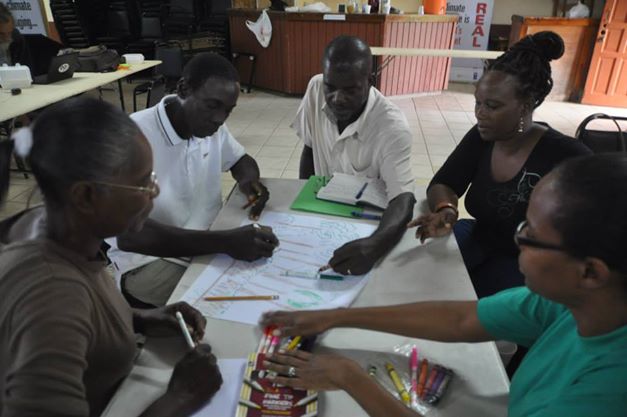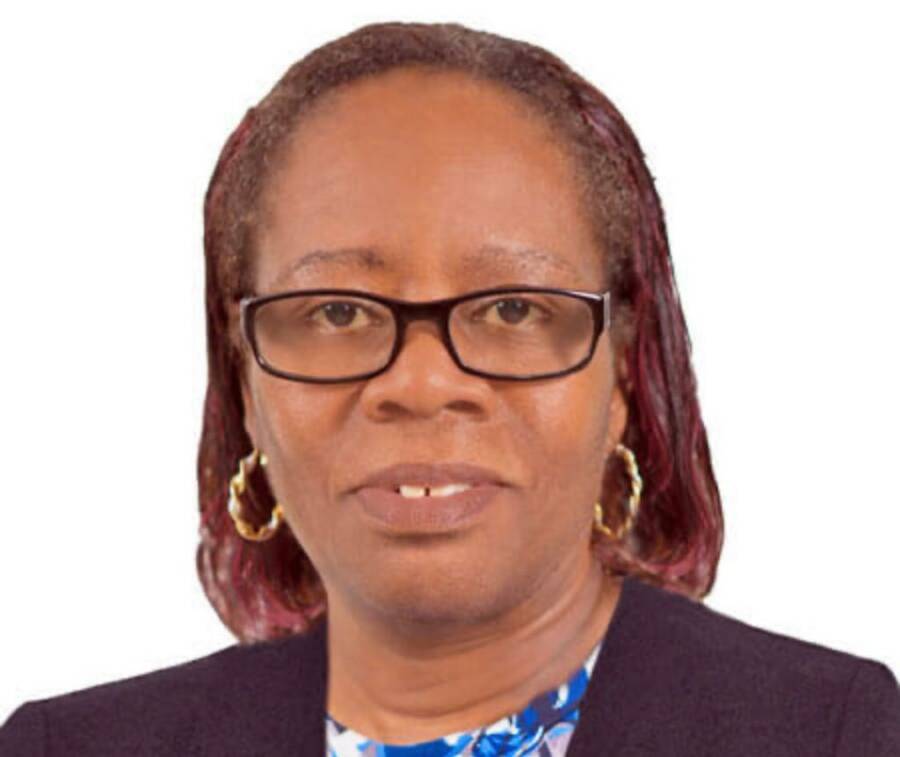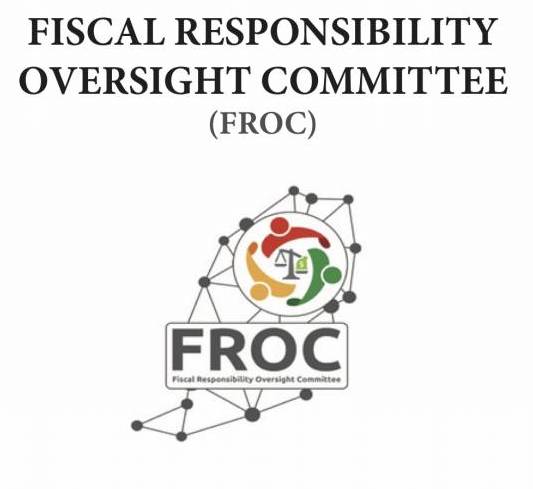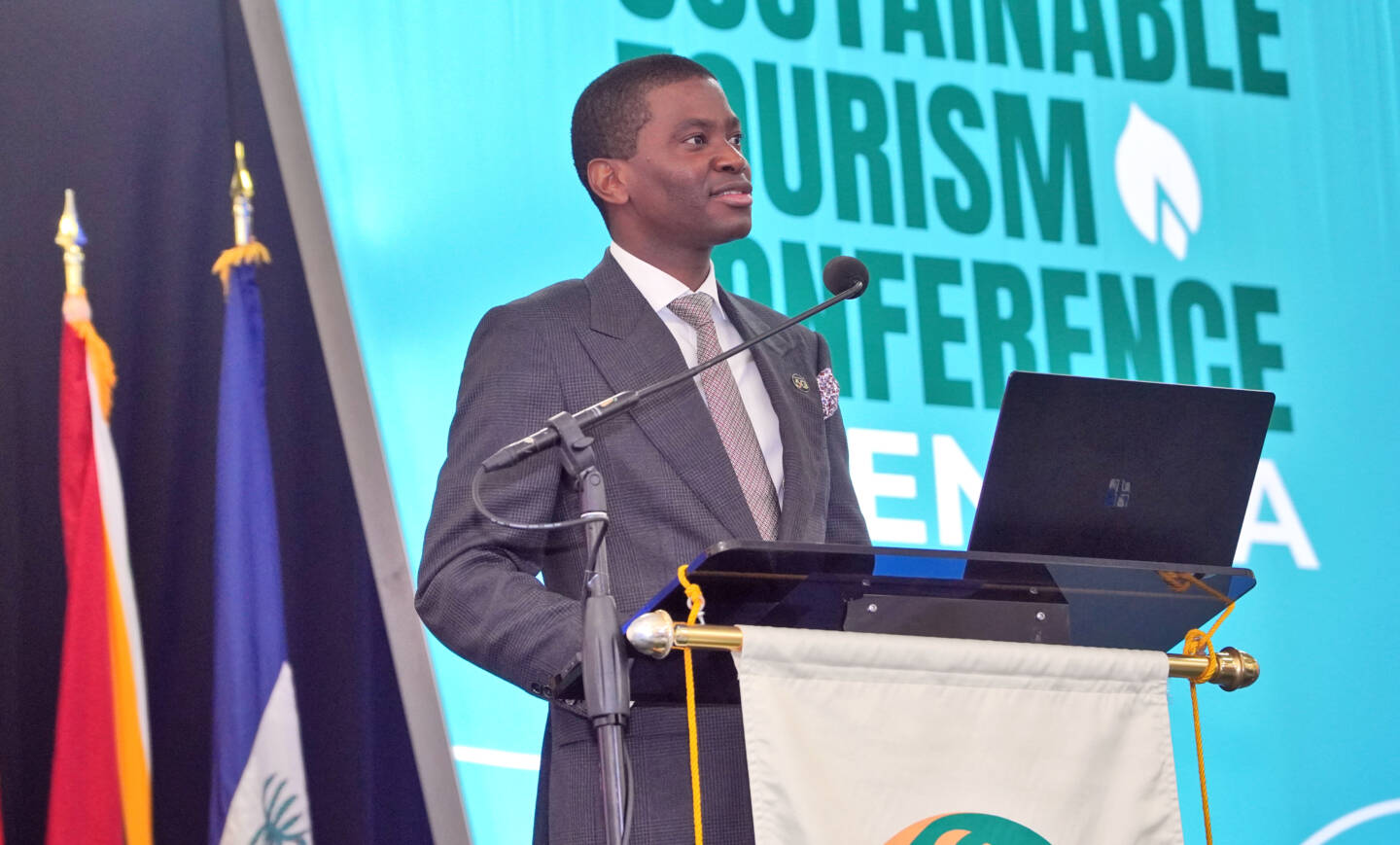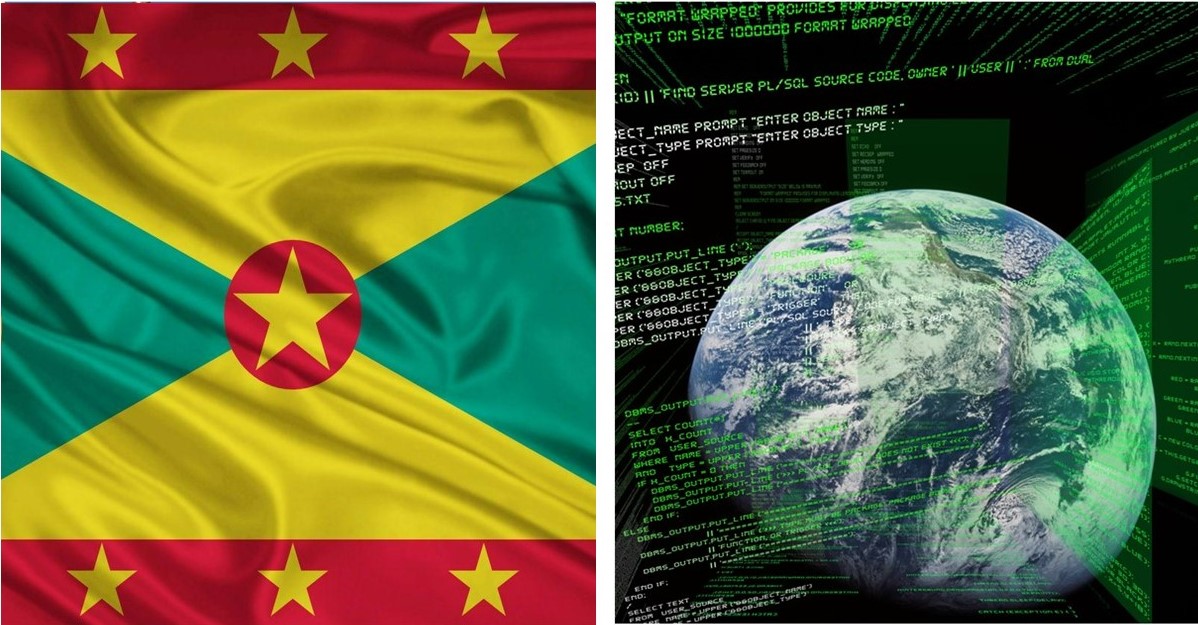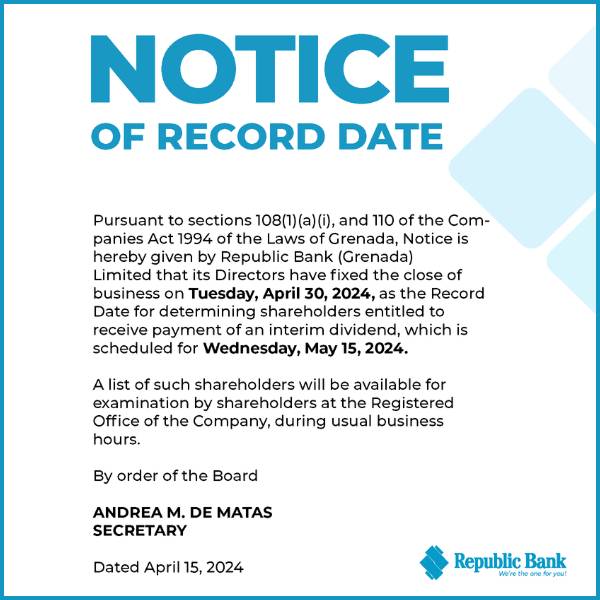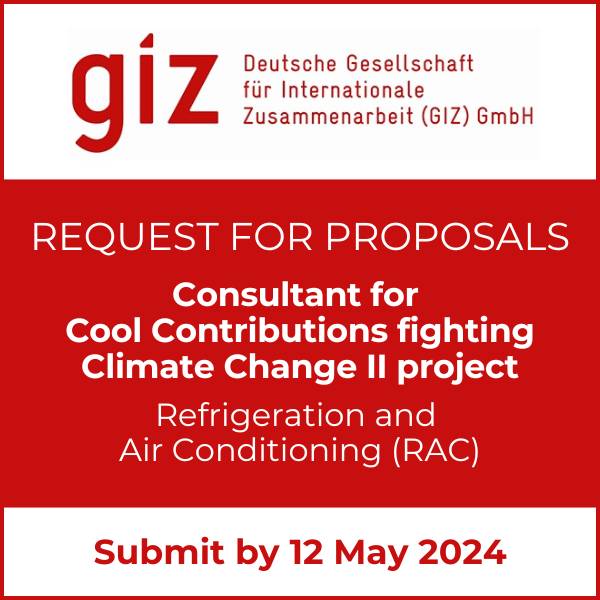36 persons from various backgrounds, occupations and communities across Grenada, will soon be certified in the principles of Permaculture which will benefit both individuals and their communities in rewarding ways.
Permaculture or Permanent Culture embodies the philosophy of working with the environment, which can be implemented in farming, architecture, tourism and in communities. John Stollmeyer, Consultant from Caribbean Permaculture and workshop facilitator, explained the need for the introduction of Permaculture in Grenada. “Permaculture is becoming more popular and is currently being implemented in agriculture in a number of first world countries. Climate change will continue to impact agriculture in a major way. Permaculture is one of the first steps in addressing this issue and will ensure the survival of agriculture in Grenada. It uses readily available natural resources to make farming more affordable, and build the communities in which we live,” he commented.
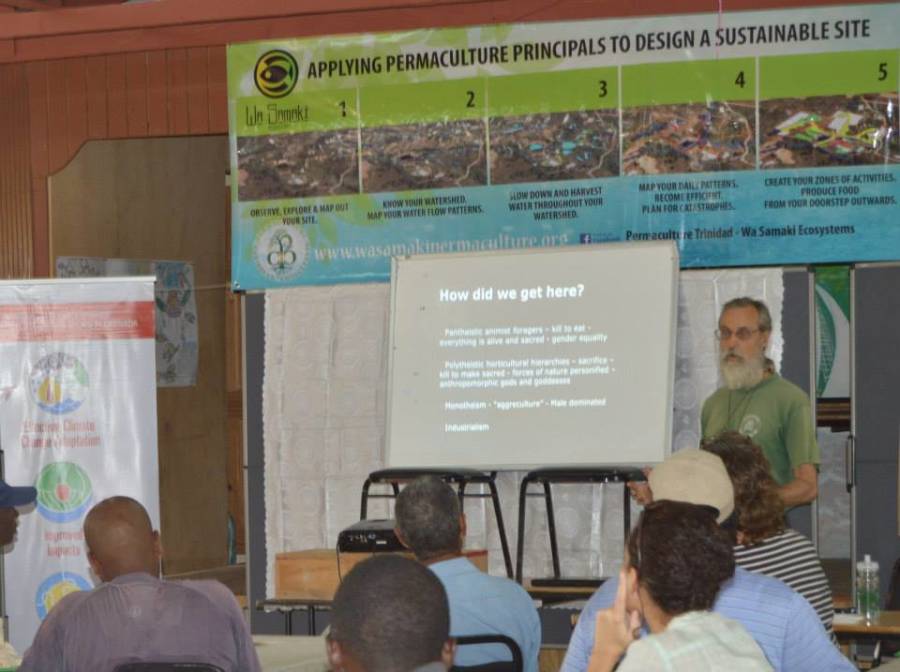
The Ministry of Agriculture, Lands, Forestry, Fisheries and the Environment and GIZ (German Agency for International Cooperation), implementing the “Integrated Climate Change Adaptation” (ICCAS) Programme and People in Action (PIA), a local social profit agency which specialises in community building, combined resources to start the climate-smart agriculture project with a two-week workshop. The workshop is planned to be rolled out in two phases over January and February 2015. The project which commenced on 12 January, educated its participants on food production, community building, background on forestry and soils, ecosystems, alternative technologies in farming, which reduces the use of fossil fuels, alternative finances and local self-help activities that raise money for the community.
Joan Charles, community worker in the village of Clozier and workshop participant, commented on the programme and the value of this initiative to Grenadians. “The concept of permaculture mimics the forest which is a sustainable entity. It provides food, shelter and sustains itself. Grenada needs more of these systems in place in order to adapt to climate change. The participants in this programme will benefit tremendously by implementing the knowledge they have gained in their homes, and on farms, as it can effectively reduce labour, the use of imported chemicals and reduce carbon emissions”.
“Unknowingly, our ancestors used permaculture practices, some of which we still employ today as seen through the strategic positioning of kitchen gardens, and planting of vegetables near the water run-off from our kitchens. I am looking forward to implementing more of these techniques learnt in this programme to assist in the “Green Community” project being implemented in Clozier.” she said.
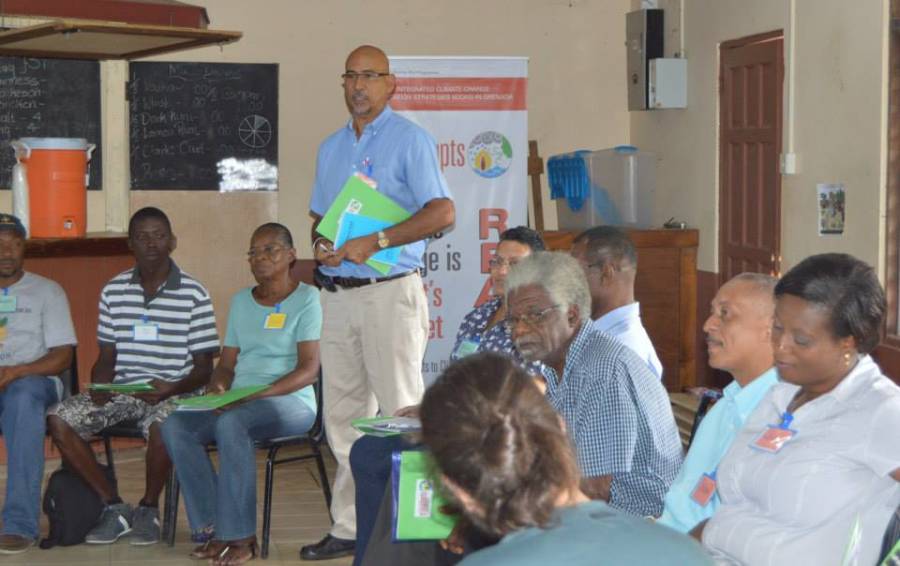
Other simple permaculture measures that can be considered and implemented around the home or when building include: Building of homes using local/recycled materials, only building as big as it needs to be, maximizing the use of solar and wind energy for heating and cooling, reuse of grey water e.g. use of kitchen water for plants.
As the project is rolled out, the farming community of Mt Moritz will be engaged. A model farm will be the primary development of the project that will employ climate-smart agriculture techniques based on Permaculture. It will serve as a research centre for new farming techniques and on-going training. The project will assist in the development of community farms, assess the value of agro-processing and community business, such as the already established Mt Moritz breakfast which brings vital revenue to the community. On a national level, the Climate Smart Agriculture Project will build the capacity of extension officers in the Agricultural Sector — including from the Ministry, MNIB, and the Nutmeg and Cocoa Associations — in key techniques to adapt to Climate Smart and how to transfer that knowledge to farmers.
Dieter Rothenberger, Head of the Grenadian-German GIZ-ICCAS Programme, thanked PIA and the participants for their keen interest in the project. “We were very pleased with the participation in the workshops. There were persons from various sectors including farmers, education, the Spice Project, Cocoa Association, Agronomists, Ministry of Agriculture and the community of Mt Moritz. This project will be very instrumental in our goal to make Grenada better prepared and more resilient to climate change and its effects.”
Commenting on the project and the reason for selecting the village of Mt Moritz to host the project and build the model farm, Denyse Ogilvie, CEO of PIA stated “We strategically selected the village of Mt Moritz to host the project as it is a very close-knit farming community. The village is situated along the Grand Mal watershed, and was once the home to an agricultural research centre. It also has established business models for generating revenue within the community. For these reasons, Mt Moritz was identified as one of the ideal places to build the model farm to allow the project to assess the direct impact on surrounding communities. This is the first phase and we are looking forward to seeing more of these techniques being used across Grenada.”
The second phase of workshops will be held from 24 February to 1 March, following which participants will receive their certification in basic permaculture.
The ICCAS Programme is funded by the German Federal Ministry for the Environment, Nature Conservation, Building and Nuclear Safety (BMUB) under the International Climate Initiative (IKI). It is jointly implemented by the Ministry of Agriculture, Lands, Forestry, Fisheries and the Environment, GIZ and UNDP.
